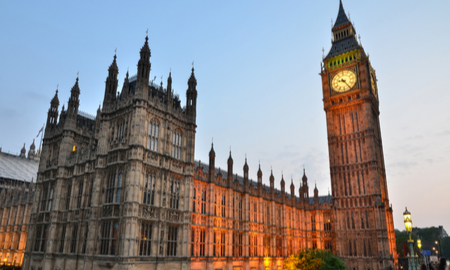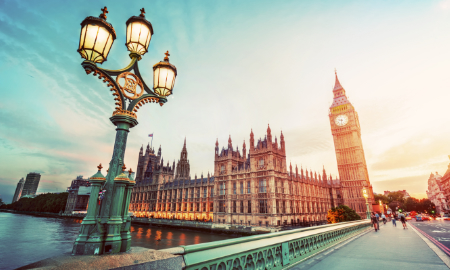Sign up for our free daily newsletter
YOUR PRIVACY - PLEASE READ CAREFULLY DATA PROTECTION STATEMENT
Below we explain how we will communicate with you. We set out how we use your data in our Privacy Policy.
Global City Media, and its associated brands will use the lawful basis of legitimate interests to use
the
contact details you have supplied to contact you regarding our publications, events, training,
reader
research, and other relevant information. We will always give you the option to opt out of our
marketing.
By clicking submit, you confirm that you understand and accept the Terms & Conditions and Privacy Policy
The UK’s Ministry of Justice has signalled its intention to ratify Hague 2019, an international convention that provides a uniform framework for the recognition and enforcement of judgments.
The move has been welcomed by UK disputes lawyers, who argue ratification of the agreement is a key post-Brexit mechanism for preserving English law’s international credentials.
The MOJ said joining the convention, whose full name is The Hague Convention of 2 July 2019 on the Recognition and Enforcement of Foreign Judgments in Civil or Commercial Matters, would “benefit businesses and consumers operating and living across borders, between the UK and other countries”.
The decision follows a consultation exercise which attracted 39 responses, all of which were in favour of joining the convention. The government will sign the convention as soon as possible and ratify it once the necessary legislation and rules are in place.
“Hague 2019 will enter into force for the UK 12 months after ratification, so presumably sometime (hopefully early) in 2025,” a briefing note by Herbert Smith Freehills (HSF) predicted.
Law Society of England and Wales president Nick Emmerson welcomed the decision, adding: “By facilitating the recognition and enforcement of foreign judgments, the convention enhances access to justice for citizens and consumers worldwide. It also strengthens a positive national and international environment for multilateral trade, investment and mobility.”
Maura McIntosh, a professional support consultant at HSF, described the move as “a significant step forward in facilitating enforcement of English judgments abroad, and will go a very long way to fill the gap left by the loss of the pre-Brexit rules in this area”.
London International Disputes Week co-chair Luke Tucker Harrison, co-founder of Keidan Harrison, said ratifying the convention would “bolster the confidence of parties to select England and Wales as a place to resolve disputes, which, in turn, may mean a likely increase in disputes being resolved through London’s business courts, which many City lawyers would welcome”.
Current contracting states to the convention include Ukraine, Uruguay and – crucially – all EU member states except Denmark.
Emilie Jones, legal director at Pinsent Masons, said: “Hague 2019 has the potential to create a global framework for the enforcement of court judgments similar to the New York Convention for the enforcement of arbitral awards, which has long been the envy of litigators.”
Accession to Hague 2019, however, is not the end of the UK’s ambitions to strengthen its place in the international disputes marketplace. Emmerson said the MOJ should not give up on efforts to accede to the Lugano Convention, which provides for the recognition and enforcement of a wide range of civil and commercial judgments between the EU and European Free Trade Association (EFTA) states.
While the EU has so far blocked the UK’s efforts to join the Lugano Convention, the Law Society maintains there should be no barrier for the EU to agree to an effective civil judicial relationship with third countries that includes both conventions.
Other steps being taken by the UK government to maintain the UK’s status as a leading hub for international law include its signing of the Singapore Convention on Mediation in May and proposed reforms to the Arbitration Act 1996, which entered parliament this week.
Email your news and story ideas to: [email protected]


1.jpg)







